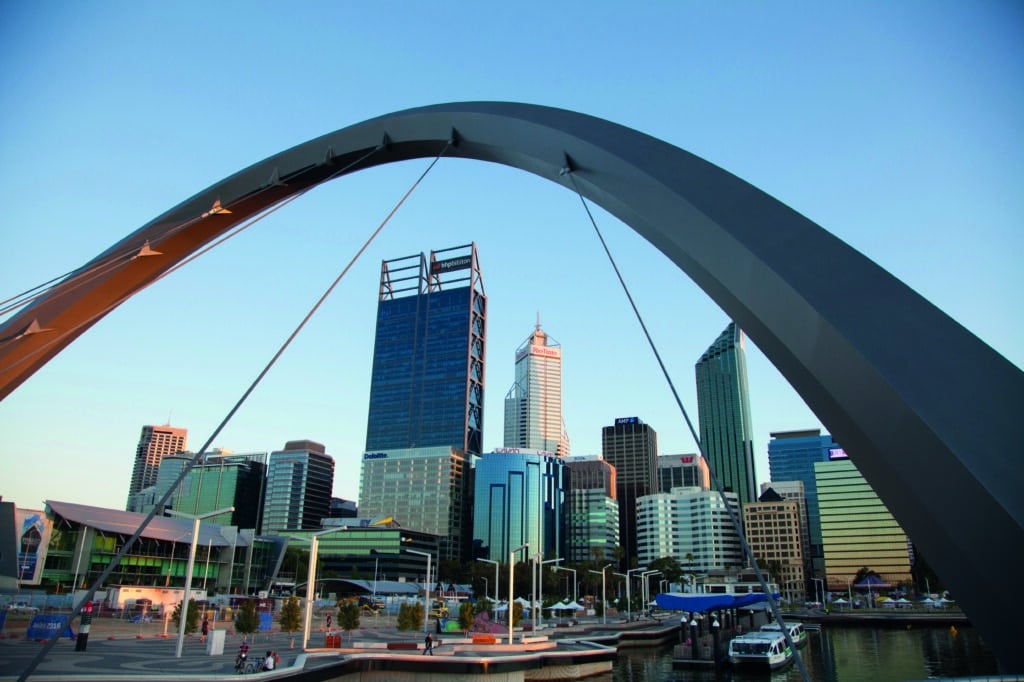
CCIWA CEO Chris Rodwell outside Parliament House in Canberra
CCIWA CEO Chris Rodwell led a delegation to Canberra this week for a series of high-level meetings to advocate on issues affecting WA businesses.
Rodwell held discussions with ministers and public servants as well as opposition and crossbench MPs on issues including business operating costs, industrial relations, defence, environmental approvals and energy.
“While the WA economy is faring better than most it’s critical the Federal Government understand the impact of some of its plans in industrial relations and environmental approvals on WA businesses,” he says.
“These changes won’t just impact our resources sector, they will run right through the economy, exacerbating the tough trading conditions that many small and family businesses are confronting at the moment. It’s critical the concerns of WA businesses are heard loud and clear.
ACCI Business Leaders Summit
The delegation coincided with the 2023 Australian Chamber of Commerce and Industry (ACCI) Business Leaders Summit in Canberra which brings together business leaders and stakeholders from across the nation to discuss key issues facing the economy and industry.
CCIWA President Nicki Ivory was part of a panel discussion on Australia’s energy future, focusing on the challenges and opportunities from the energy transition for businesses.
The panel, which also included Minerals Council of Australia CEO Tania Constable and Sarah McNamara from the Australian Energy Council, explored the complexities of the energy transition and how Australia can capitalise on the push towards renewables by capitalising on our vast critical mineral resources.
Ivory told the forum uncertainty caused by environmental approval delays, as highlighted in CCIWA’s report Green Web: How environmental approvals could trap Australian investment, was one of the biggest hurdles to Australia’s energy transition ambitions.
The report found there is $318 billion worth of project investment in the pipeline in WA alone, waiting for environmental approval.
“The investors in those projects will only be patient with the approval process for so long, and we risk them taking their money elsewhere,” Ivory says.
“The projects are there, the project proponents are there, the funding is there – but the window of opportunity will narrow. For some projects, such as hydrogen projects for example, the opportunity could eventually disappear as hydrogen projects get built in the US or elsewhere in the world instead.
“By creating this logjam in the environmental approvals in particular, we can’t get the full benefit of the project pipeline. Every day we delay, we lose some of our opportunity to be a significant part of the energy transition.
“We have the critical minerals in the ground and we’ll fumble our way through and get some projects up but if we don’t fix the approval processes I doubt we will optimise our opportunity.”
Rodwell took part in a forum on how businesses can navigate environmental, social and governance (ESG) principles, alongside fellow panellists Hanni Rosenbaum, Executive Director of Business at OECD, and Governance Institute of Australia CEO, Megan Motto.
The panel delved into ESG principles and whether they are a useful way for businesses to support positive change, or if they constitute public policy matters being imposed on business.
Rodwell says a number of significant WA companies were leading the way in embracing ESG principles.
“By global comparison, our resources companies in particular are ahead of the game,” he says.
“There’s a lot of interest when they’re operating in other markets in the approach they’ve taken in Australia when it comes to ESG.
“That’s not to say that everything’s perfect but it really helps to deepen that conversation around what is the role of business in society.
“We’ve got an energy transition ahead of us and there are some fundamental issues in calibrating our society around what is required to achieve that transition.
“I do think there’s a big role for business in working with the broader community in terms of what form the transition needs to take and what skills will be required to achieve the dual goals of economic growth and decarbonisation.”
The ACCI Business Leaders Summit also heard keynote addresses from Climate Change and Energy Minister Chris Bowen and Federal Opposition Leader Peter Dutton.
Defence Minister Richard Marles was a keynote speaker at the ACCI Gala Dinner.
To find out more about what we stand for, visit our Advocacy page.












